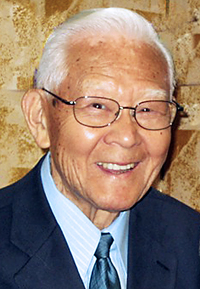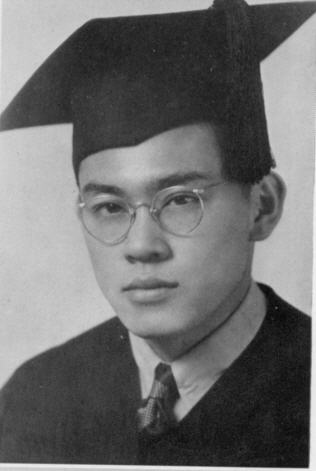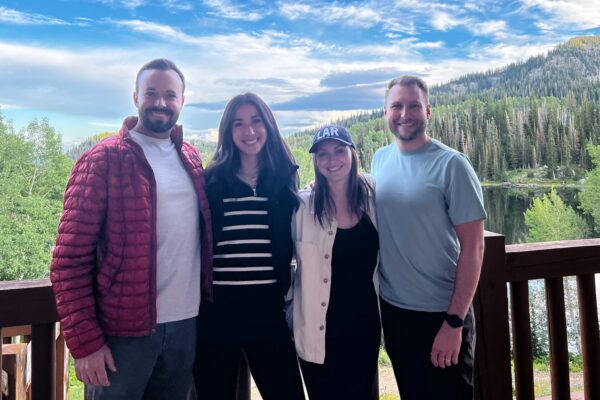In 1941, Paul Nagano ’42 was a carefree student at then-Chapman College, enjoying pranks with his fraternity brothers, studying theology and playing basketball on the squad he describes as “too short to play varsity.”

The Rev. Paul Nagano, Ph.D., interned in a relocation camp during his senior year, will be awarded an honorary doctorate at commencement. (Photo/Nisei Week Foundation)
That life quickly ended after Japan attacked Pearl Harbor, and in 1942 Nagano was incarcerated in a relocation camp. It meant an early end to his senior year — no grad week antics with friends, no place in the traditional commencement procession. But deep in the Arizona desert where Nagano and his family were interned, a package arrived – Nagano’s diploma from Chapman.
“I received my bachelor of arts degree, sent to me in the wilderness camp. It was a total surprise, but meant a great deal for me to be remembered,” he recalls.
On Saturday, May 19, The Rev. Nagano, Ph.D., will be remembered again by his alma mater when he is presented an honorary doctorate at the commencement ceremony for Wilkinson College of Humanities and Social Sciences. It will be his first visit to the Orange campus, having attended Chapman when it was in Los Angeles. His wife and three children, including two traveling from Hawaii, will be in attendance.

A young Paul Nagano pictured in the 1942 CEER, the Chapman yearbook. (Image/Frank Mt. Pleasant Library of Special Collections & Archives at Leatherby Libraries)
“It’s very exciting,” Nagano said, speaking from Atherton Baptist Homes in Alhambra, where he resides and serves as a chaplain. “It’s a redemptive experience, because you know to have your education interrupted and go into a concentration camp, it’s kind of disappointing.”
Disappointment is just about the harshest word Nagano, who turns 92 next month, has for the internment experience that interrupted the lives of nearly 120,000 Japanese and Japanese Americans. He recalled tense moments in the days after Pearl Harbor, including a scuffle in a diner with an angry man, as well as detainment by police when he was visiting two Baptist missions he served in Japanese neighborhoods near Los Angeles Harbor and Terminal Island.
By spring he was in Poston internment camp. But he says his faith, work and even the process of writing his doctoral dissertation helped him rebuild and mend his life.
“Because I was in service to God, I was able to handle it,” he said.
Nagano was allowed to leave the camp to attend Bethel Baptist
Seminary in Minnesota so he could enlist in the Army as a chaplain, but the war soon ended. After completing the degree he went on to a successful career in ministry, serving congregations in Los Angeles, Hawaii, Seattle, Oakland and throughout Northern California.
He earned his doctorate at the Claremont School of Theology. There Nagano says he spent a year of intense study on the subject of race, ethnicity and identity. The process helped him resolve the questions that haunted him after the war and internment, he says.
“In our world we have to learn to live with diversity. In this diversity, life becomes much more interesting and exciting. Not only interracial, but interfaith, too.”
The Wilkinson College commencement will be at 9:15 a.m. on Wilson Field. It is open to the public.




Add comment